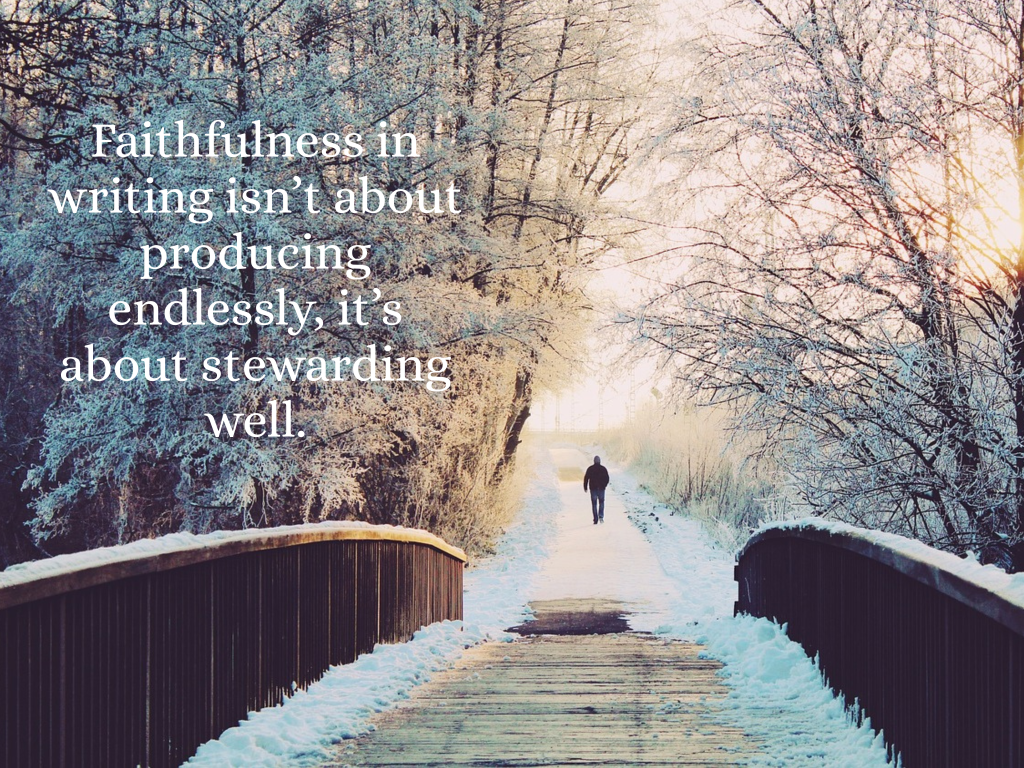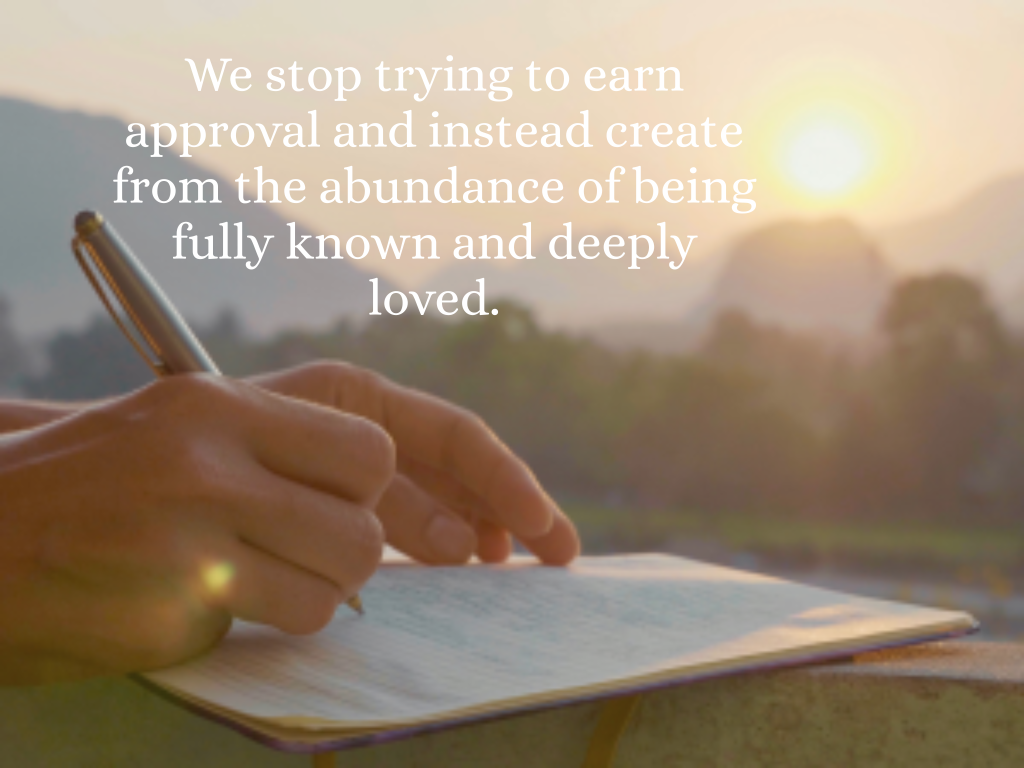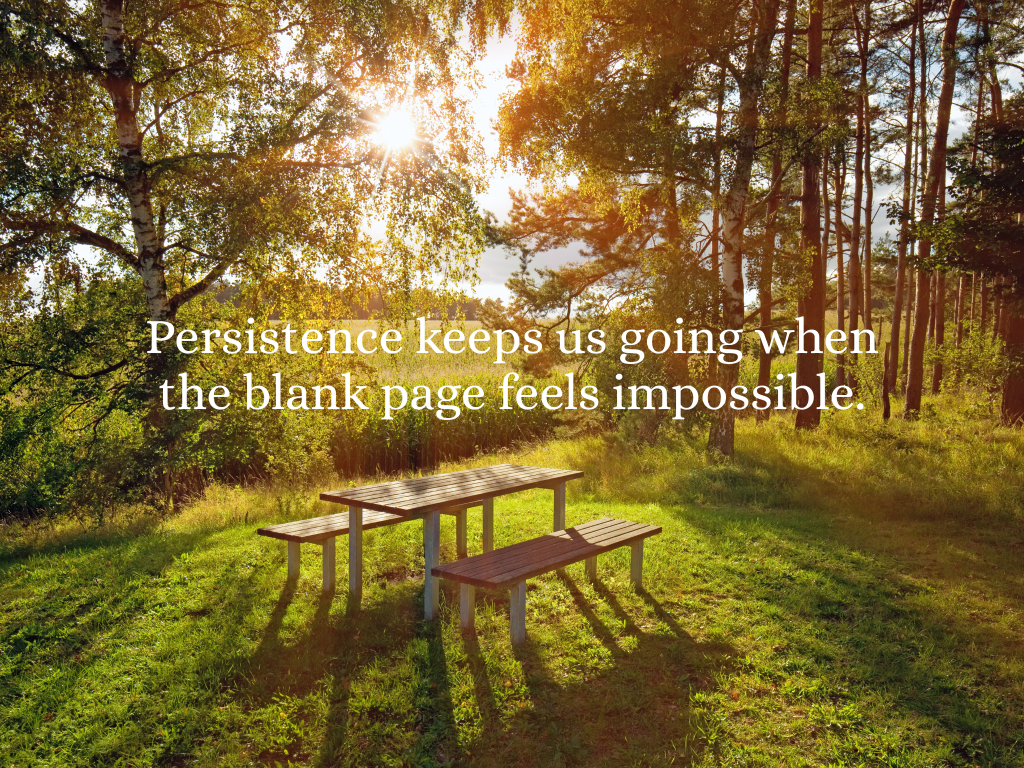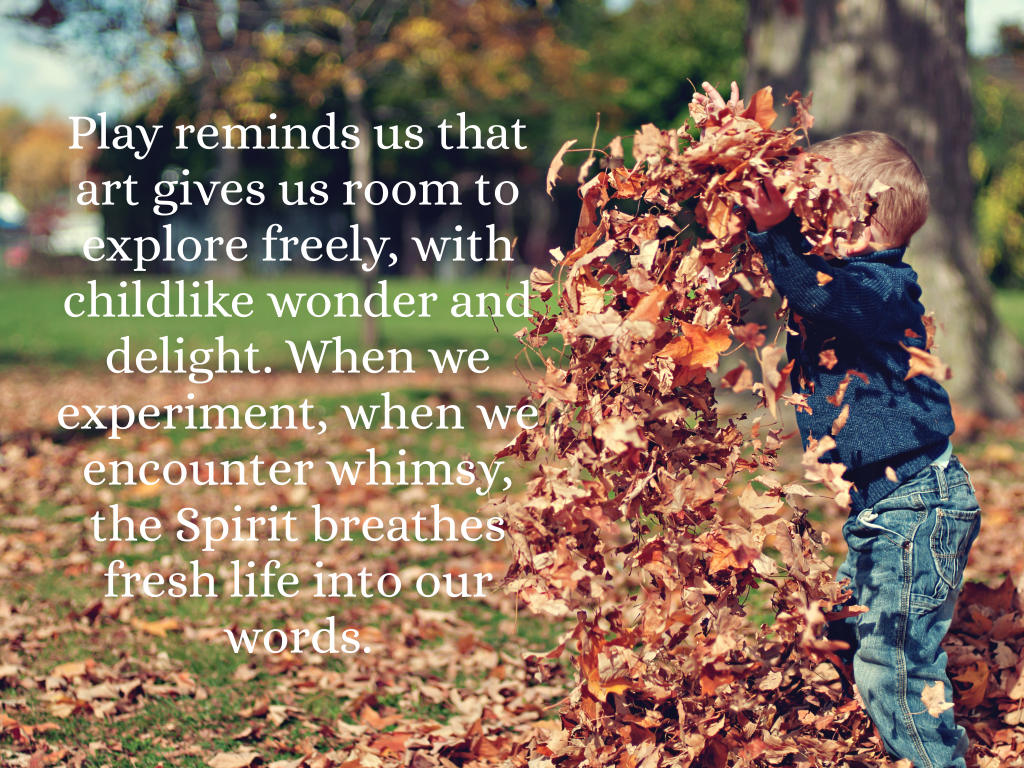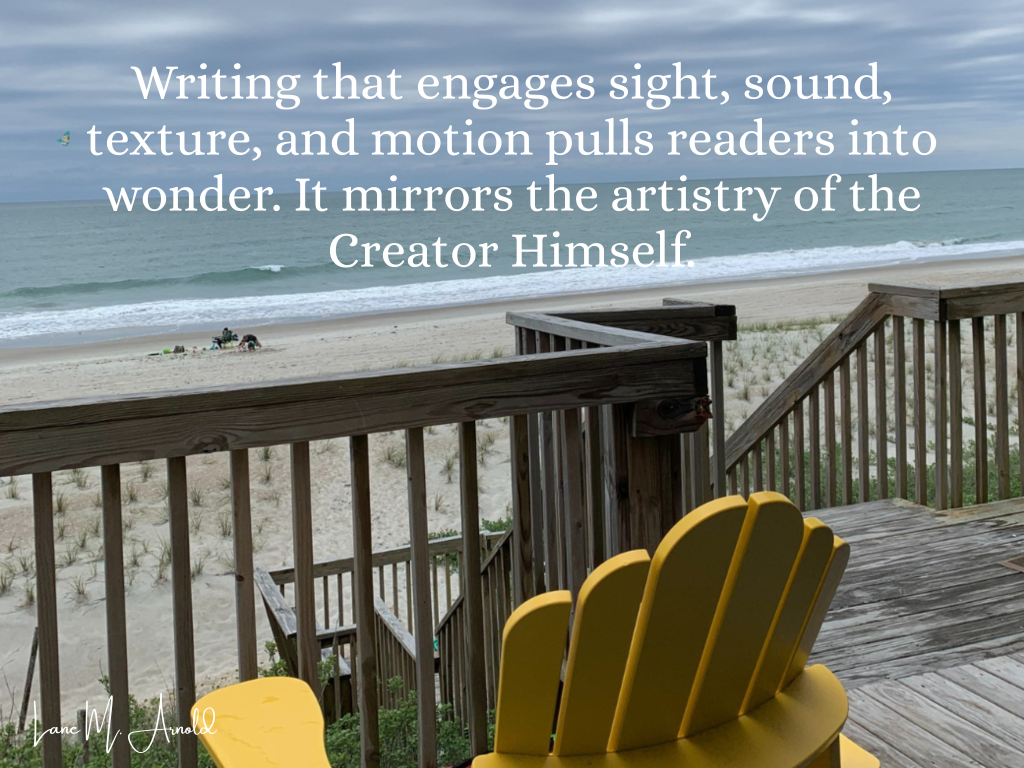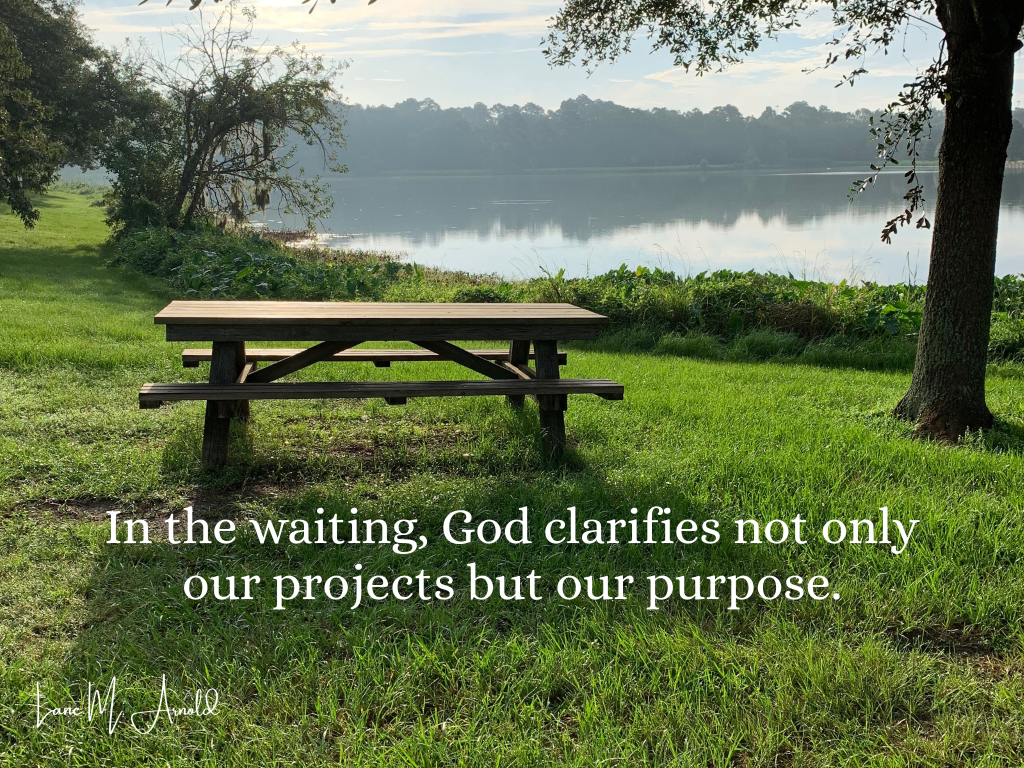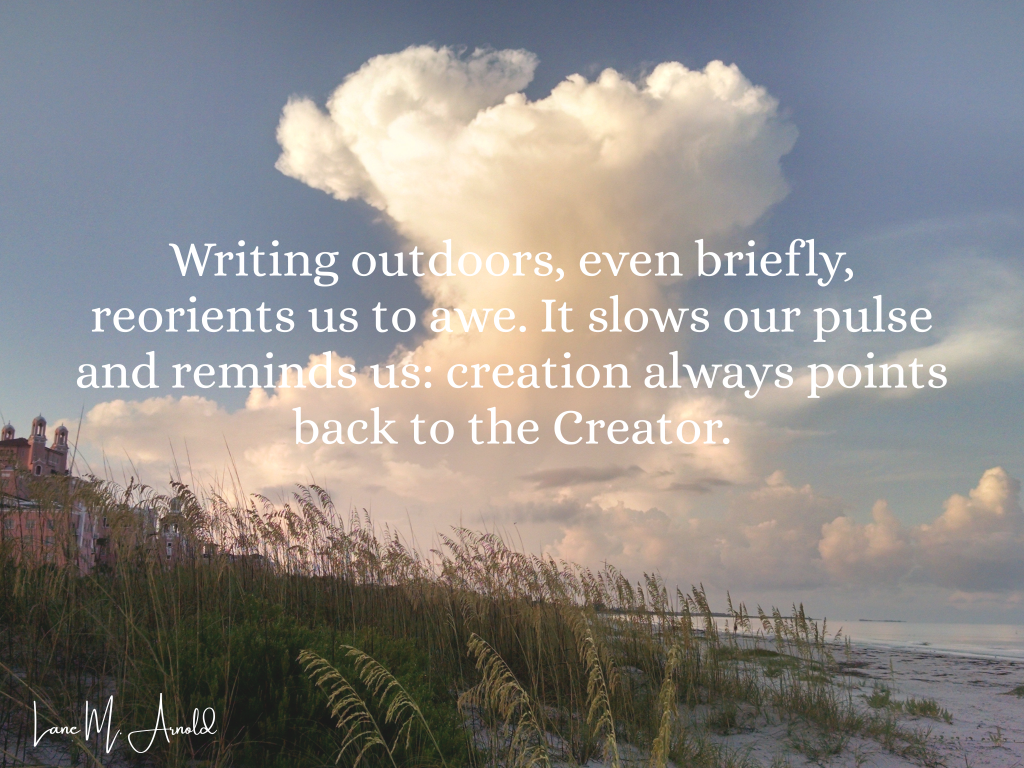As the year draws to a close, it’s natural for writers to look back on the words we’ve written, including the ones we never quite managed to put on the page. Reflection is more than a tally of productivity. It’s a sacred pause — a moment to notice where God has met us in the creative process, where He’s invited us to grow, and where His faithfulness has carried us even when our own motivation waned.
Over the course of 2025, we explored a variety of themes that called us to deeper places: faithfulness, belovedness, grief, hope, stewardship, play, calling, imagery, discernment, and creation. Each month brought a new way of seeing our writing life, not as a hobby or hustle, but as a holy calling.
Let’s look back, one month at a time, and ask:
What has God written on your heart this year and how might you write about it?
January – Moving Forward in Faithfulness
I opened the year asking complex questions:
-
- What keeps us from showing up to write?
- What gets in the way of our growth?
- How can we stay faithful to the gifts God has entrusted to us?
Paul reminded us in 1 Timothy 4:7-8 to “train ourselves for godliness.” For writers, that training looks like small, daily acts of showing up: Reading excellent books. Reflecting deeply. Letting our words be shaped by prayer.
Faithfulness in writing isn’t about producing endlessly, it’s about stewarding well.
Write About It:
-
- Where did you see God’s faithfulness in your writing journey this year?
- What rhythms or habits helped you nurture consistency?
- What role did perseverance play in your creative life this year?
February – Writing from Belovedness
This month, we remembered that before we are writers, we are beloved children of God.
2 Timothy 1:7 reminds us: “For God has not given us a spirit of fear, but of power, love, and a sound mind.”
When we write from belovedness, the words flow not from striving, but from rest.
We stop trying to earn approval and instead create from the abundance of being fully known and deeply loved.
Write About It:
- How did God remind you of your belovedness this year?
- What fears or comparisons did you lay down so you could write freely?
- How will you invite others to remember who they are in Christ?
March – Writing Through Grief
Grief visited many writers this year — in loss, disappointment, or change. Writing interwoven with grief became a sacred act of healing.
We learned to move through layers: personal journaling, prayerful reflection, gentle sharing, and finally, words that could serve others.
Grief writing is never linear; it circles back and forth. Sometimes it is gentle like the ocean at low tide. Other times, a rogue wave topples us over and pummels us. But every word written in honesty becomes a testimony of hope.
Write About It:
- What has grief taught you about God’s nearness?
- How can you write about sorrow in a way that also holds space for hope?
- What images — water, shadow, dawn — help you tell the truth of your pain?
April – Writing with Joy and Hope
As spring unfolded, we pondered how joy and hope are not naïve — they are spiritual disciplines. Writing with joy often means returning again and again to prayer, persistence, and presence.
Prayer tunes us to God’s voice.
Persistence keeps us going when the blank page feels impossible.
Presence allows us to delight in companionship — with God, with books, with mentors, and editors.
Write About It:
- How did joy show up in your creative work this year?
- What routines helped you stay hopeful in your writing?
- What hope holds you steady as you create?
May – Editing and Stewardship
The month of May reminded us that editing is not a chore. It’s an act of worship. Good editing refines not only our manuscripts but also our hearts.
When an editor helps us “see what we’re not seeing,” it might mirror God’s gentle encouragement and course corrections. We learn to welcome feedback, to let our words be shaped for clarity and truth.
Editing is the dance between surrender and stewardship — offering our best while letting go of control.
Write About It:
- How has revision stretched and grown your humility or patience?
- What metaphors from editing also describe spiritual refinement?
- How are you learning to see your work (and yourself) more clearly?
June – Rediscovering Playfulness
Midyear, creativity invited us to play again. Sometimes we take writing so seriously that we forget the holy laughter of it — the curiosity, the risk, the surprise of words we didn’t expect.
Play reminds us that art gives us room to explore freely, with childlike wonder and delight. When we experiment, when we encounter whimsy, the Spirit breathes fresh life into our words.
Write About It:
- What moments of creative playfulness renewed your imagination?
- How does play mirror God’s own creativity?
- How is your creative life a delight — not as frivolous, but as sacred?
July – Stepping Into Your Calling
July invited us to ask: What has God called me to write and why?
Whether fiction, poetry, memoir, or devotionals, every writing form can become a place of ministry when offered back to Him. Staying in step with God and with our calling to write and create sometimes looks like simply writing the next word or the next sentence. We step in by stepping forward, one word at a time.
Write About It:
- What helped you discern your particular calling as a writer this year?
- What moments of hesitation turned into holy courage?
- When did you say “yes” to God’s creative invitation?
August – Writing with the Senses
August invited us to notice more deeply. God gave us five senses for a reason—to help us see and savor His creation, and to reflect that beauty through our words.
Writing that engages sight, sound, texture, and motion pulls readers into wonder. It mirrors the artistry of the Creator Himself.
Write About It:
- How did you use sensory detail to deepen your writing this year?
- What moments of awe or beauty could you describe with greater vividness?
- How can sensory writing become a form of worship?
September – Discernment in the Creative Life
By autumn, we began to slow down and listen. Discernment became the quiet work beneath all creative work — the listening heart that asks, “God, what are You inviting me to be, to do, to align more closely with You?”
We practiced silence. We asked hard questions. We waited. In the waiting, God clarified not only our projects but our purpose.
Write About It:
- How have you experienced God’s guidance in your creative choices?
- What practices help you “linger longer” before deciding what to create next?
- How is discernment in your writing life a place of growth, a space for unfolding?
October – Nature and Writing
As the seasons changed, we stayed attentive to what was beyond the walls of our daily space. We rediscovered that the created world is one of God’s most generous teachers. Leaves, light, birdsong, and rain became metaphors for the creative life—patterns of rest, renewal, and resurrection.
Writing outdoors, even briefly, reorients us to awe. It slows our pulse and reminds us: creation always points back to the Creator.
Write About It:
- How did nature shape your writing or your faith this year?
- What symbols in creation echo themes of your life and in the book or story you are creating now?
- How can you use your words to reflect God’s heart for the world He made?
November—Reflections
Looking back on 2025, we can see that a writer’s journey is also a disciple’s journey.
Every month has whispered God’s same invitation: Write with Me.
Faithfulness has trained us.
Belovedness has anchored us.
Grief has softened us.
Joy has renewed us.
Editing has refined us.
Play has awakened us.
Calling has stretched us.
Imagery has deepened us.
Discernment has steadied us.
Creation has inspired us.
And through it all, God has written His story in and through ours.
As 2025 draws to an end, ask yourself:
- What has this year taught you about your creative calling and your relationship with God?
The flurry of the holidays is fast upon us in November in the United States. Thanksgiving will give way to Advent. We will soon celebrate Christmas, then New Year’s Eve.
Before the rush, take time to reflect on how you want to close out 2025. Begin to imagine with God what 2026 might hold.
- What words are still waiting to be written?
- What craft would you like to learn more about in the year ahead?
- What new stories might emerge as you write from the heart of faith in 2026?
May your words—past, present, and future—be an offering of worship, honesty, and hope.
May you continue to write not for God, but with Him.

